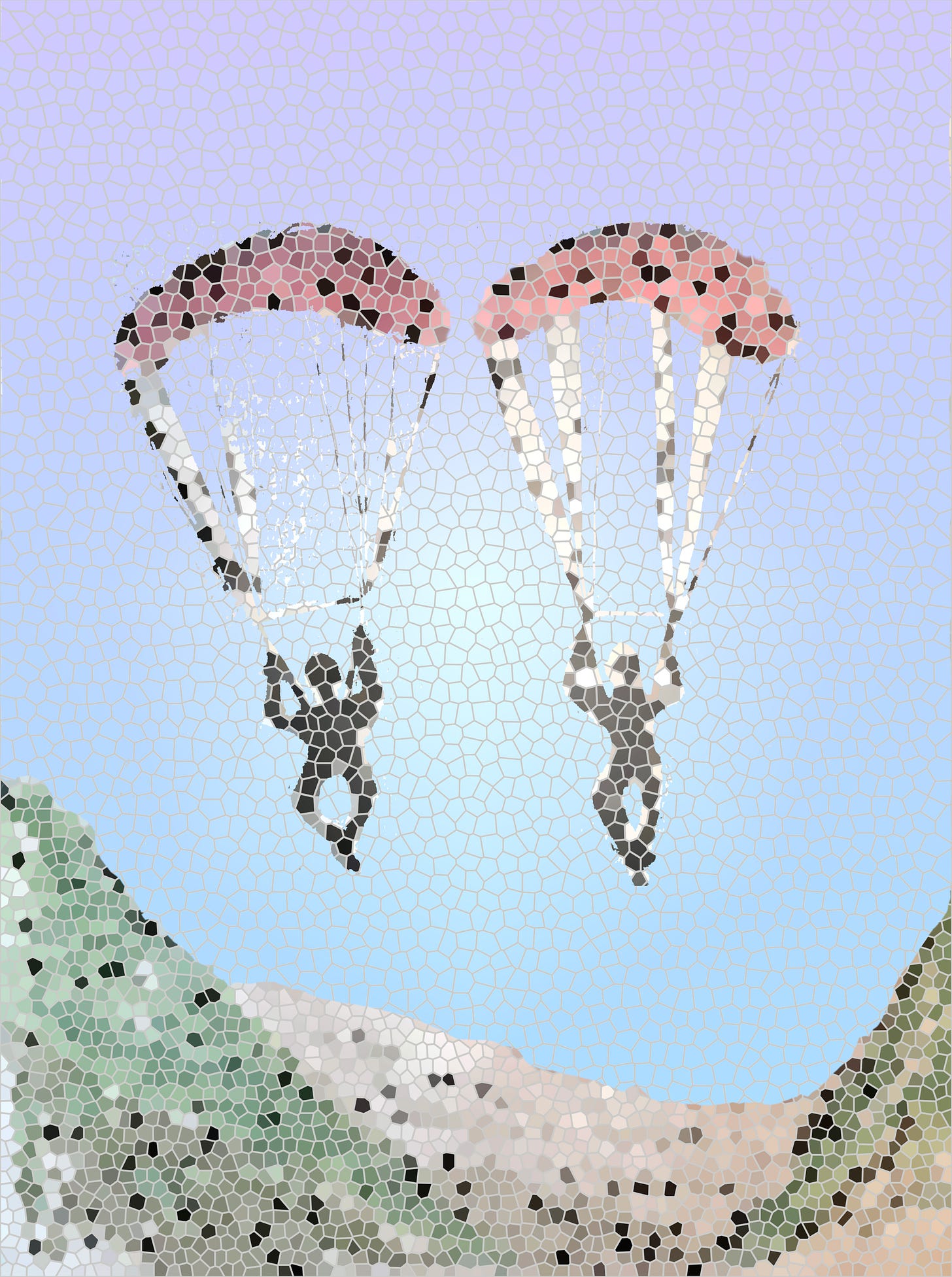Falling
I’m in the military, but I met Fia at a country fair. She was a nurse and didn’t flinch when I told her I jumped out of helicopters on the regular. If anything, she looked intrigued.
When we were planning the honeymoon, Fia said to me,
“I don’t want to be old and crippled in a bed having never done the things that scared me.”
If I didn’t love her before, I did then. She didn’t want to jump tandem, her strapped to me ‘like a baby,’ and according to her if we jumped from a military plane I was still at work.
“Make a list of the top three places you’ve always wanted to jump, and I’ll pick one.”
During training at the base camp in Switzerland, Fia listened close, with the attention of a woman whose profession was life and death. When we strapped into our harnesses, she was fine. We buckled into our seats, and she watched the window, the bulky helmet blocking my view of her face. I slipped my hand into hers, our wedding bands stored safely at home. Her white fingers were rough from the constant sterilization the hospital required, but I always liked her hands: strong from lifting patients, capable from cleaning bedpans, and steady from placing needles.
I felt no tremor in them now.
Still though, her fingers looked small in my black hand: rough from compound maintenance, sturdy from carrying equipment to drop zones, and steady after an M1 Garand.
She flashed me a smile. We’d only known each other a few months, I was still learning to read her, but I could see it now. She was nervous. It wasn’t surprising, all the sane recruits were. It was good, a sign of healthy survival instincts.
We rose, went through the procedure one last time. I checked her straps. We stepped to the edge. She looked down, and I watched her face as she took in the drop.
“Warren, I’m pregnant,” she said, and jumped.
The sound of the engine, so loud we could barely hear each other, was distant. The vibrations of the craft pounded numbly through my bones, turning my muscles to jelly. My pregnant wife had just jumped off a plane. And I’d let her. I’d encouraged it. What kind of man—what kind of husband—was I? I’d felt so calm through all the time we were dating, planning the wedding, never once did I wonder if I was up to the task.
I don’t recall stepping off the craft. I just remember thinking there was a speck beneath me getting smaller that I had to catch before it smashed. Clouds floated over the patchy green fields like smoke after fireworks. A panic I’d not felt since the first time I jumped of a plane into gunfire, punched into my gut. It was more training than conscious thought that got my first chute released. I fell next to her, dropping one hundred feet per second.
“How can you know that fast? We just got married.”
Altitude fled past us.
“I’m not,” she said. Her face was stretched wide, though from joy or blistering wind pressure I wasn’t sure. “I just didn’t think it was fair I’m the only one jumping out of a plane having a heart attack. I wanted to do this together,” she said.
Fia took out her phone and took a picture of my bewildered expression. Gravity and wind force yanked the phone out of her hands. We watched it spinning away, swallowed up by the sky in half a second.
We hurtled to the ground, plummeting to our deaths, me and my crazy bride. A grin spread over my face. It was time to pull the chute release, to yank us to safety, but I waited, watching her face. She inspected the charging ground with an expression of intrigue. I marked the look, figuring it might serve as warning for her future ‘surprises.’
Just a little closer.
I reached for her hand. Fia met my eyes. As one, we pulled the release.
Dear Reader,
A friend of mine who is a therapist recently told me that when we are stressed, there are two ways our mind processes. The first way, we are able to logically think through the situation. The second way bypasses our logic and goes straight to the amygdala. This is our “fight or flight” center. It is purely physiological, and reason does not help.
What my friend said next surprised me: in these situations, the stress is actually good. Why? Because it wakes up the amygdala and allows new synapses to form. “Neurons that fire together, wire together.” Thus, experiencing stress while going through a difficult situation is good because your brain is physically learning how to survive this, and that you will be alright.
I hope you are experiencing many happy surprises, but even if the surprises are not so happy, I hope you are able to push through and do it stressed. Enjoy the drop.




